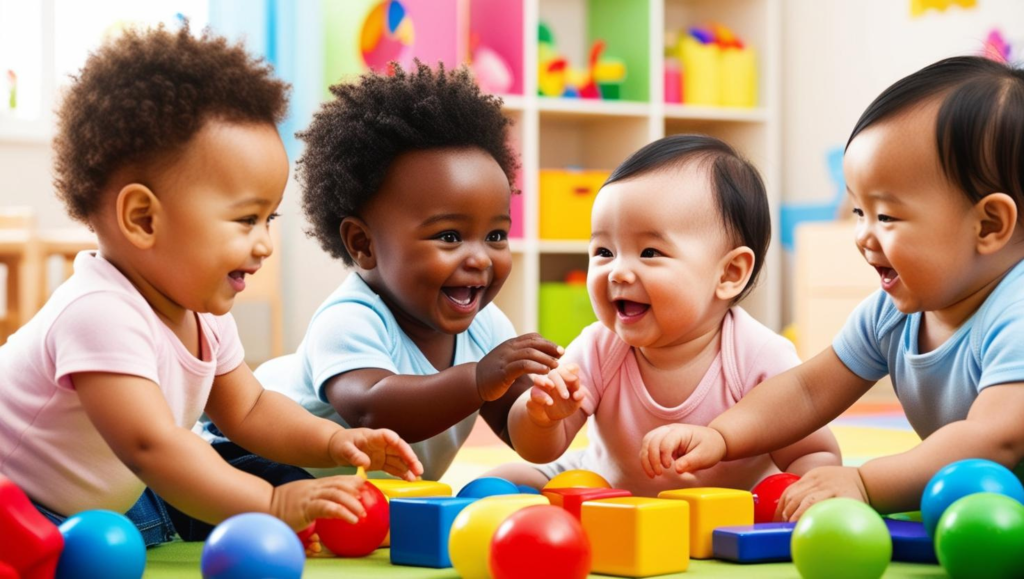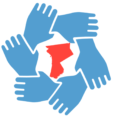The Magic of Play

Babies are little explorers! Between 6 and 12 months, play is like a superpower that helps them learn about the world. It’s not just fun – it’s how babies grow their brains, make friends, and understand everything around them.
What Babies Learn Through Play
Brain Power
- How things work
- Cause and effect
- Problem-solving skills
- Creativity
- Language skills
Social Skills
- Sharing
- Taking turns
- Making friends
- Understanding feelings
- Communicating without words
Types of Play at Different Stages
6-8 Months: Curious Explorers
- Love to watch people
- Enjoy peek-a-boo games
- Start to understand “mine”
- Like simple toys they can shake or bang
- Enjoy mirroring facial expressions
9-12 Months: Little Investigators
- Crawl and explore everywhere
- Play simple games like pat-a-cake
- Start to play next to other babies
- Use toys in more creative ways
- Understand simple words and commands
Fun Play Activities
Games Babies Love
- Peek-a-Boo
- Teaches object permanence
- Makes babies laugh
- Helps build trust
- Roll the Ball
- Teaches taking turns
- Helps with hand-eye coordination
- Shows how to share
- Simple Stacking
- Learn about shapes
- Practice fine motor skills
- Understand cause and effect
- Singing and Music
- Learn new sounds
- Develop language skills
- Connect with caregivers
Playing with Others
Playdates Are Important
- Short meetings (30-45 minutes)
- Lots of toys to share
- Adult supervision
- Calm, safe environment
- No pressure to play together
What Babies Learn from Playdates
- It’s okay to be near other babies
- How to watch and learn
- Basic social rules
- Sharing and taking turns
- Making first “friends”
Signs of Healthy Social Development
Your Baby is Doing Great If They:
- Smile at familiar people
- Get excited to see parents
- Try to copy sounds and actions
- Show interest in other babies
- Play simple games
- Express different emotions
Tips for Parents
- Be patient
- Follow baby’s lead
- Make play fun
- Use lots of smiles and gentle touches
- Talk and sing during play
- Offer different play experiences
When to Talk to Doctor
Ask about social development if your baby:
- Doesn’t respond to their name
- Doesn’t smile
- Doesn’t try to communicate
- Seems very upset around others
- Doesn’t show interest in play
References
- American Academy of Pediatrics. (2022). Infant Social Development. HealthyChildren.org.
- Zero to Three. (2021). Social-Emotional Development. zerotothree.org.
- Centers for Disease Control and Prevention. (2022). Developmental Milestones. cdc.gov.
- National Association for the Education of Young Children. (2021). Play and Learning. naeyc.org.
- World Health Organization. (2022). Child Development Guidelines. who.int.
- Child Mind Institute. (2021). Early Childhood Social Skills. childmind.org.


